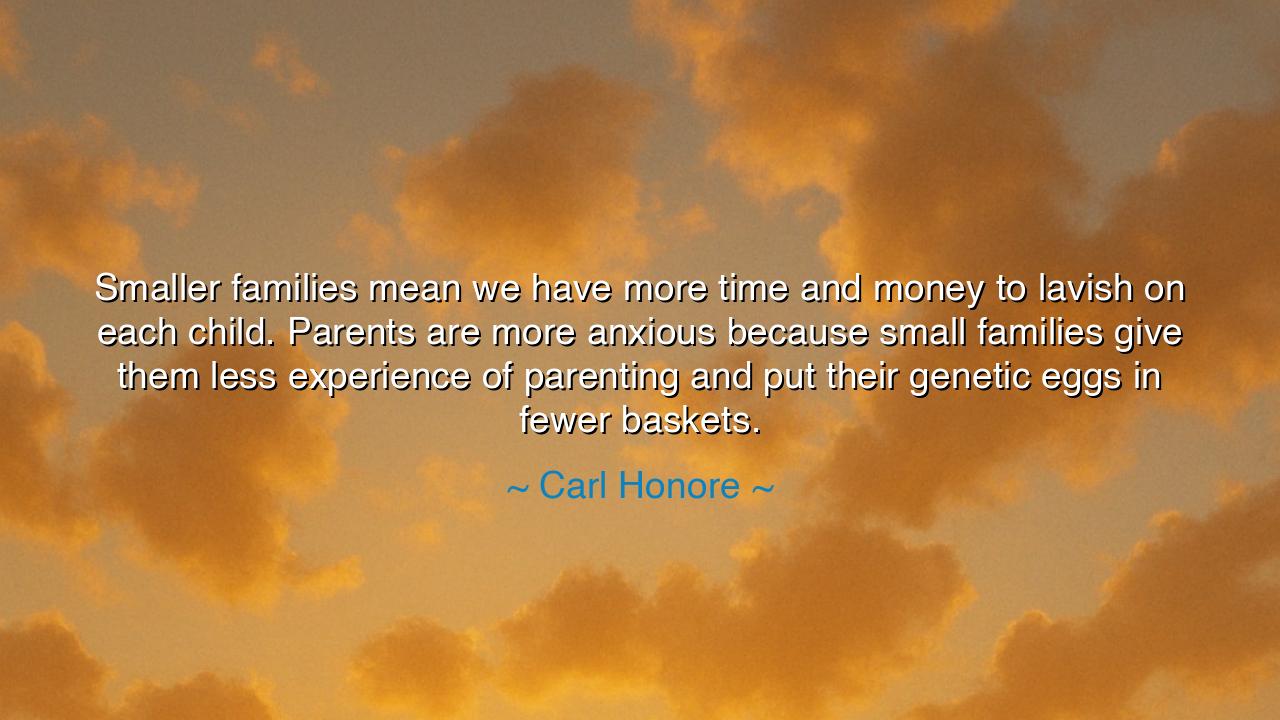
Smaller families mean we have more time and money to lavish on
Smaller families mean we have more time and money to lavish on each child. Parents are more anxious because small families give them less experience of parenting and put their genetic eggs in fewer baskets.






Hear the words of Carl Honore, who speaks with clarity about the changes of our age: “Smaller families mean we have more time and money to lavish on each child. Parents are more anxious because small families give them less experience of parenting and put their genetic eggs in fewer baskets.” In this observation lies the tension of the modern household. Where once children came in great number, now they are fewer, more precious, more fiercely guarded. With this shift has come a strange duality: abundance of resources, but also abundance of worry. For the fewer the children, the more weight each carries of their parents’ hopes and fears.
In the days of old, large families were the norm. Children grew not only with parents, but with siblings as teachers, rivals, protectors, and companions. The mother and father, seasoned by many births, grew skilled through repetition. Mistakes were softened by experience; errors with the first child could be corrected with the second or the third. The household was a community, and each child bore a share of love, but also a share of freedom, for the parents’ gaze was spread wide. Today, in the age of smaller families, that gaze narrows, fixed with intensity on one or two, magnifying every choice, every stumble, every expectation.
The phrase “genetic eggs in fewer baskets” speaks with ancient resonance, for it is the echo of survival. In times past, when many children were born, families knew that some might not endure illness, famine, or war. Yet life continued, for the line was preserved in numbers. In the modern world, with smaller families, parents stake all upon a single child or a pair, and this raises the stakes to heights unbearable. Each decision feels monumental, each failure catastrophic, for the legacy of the family seems to rest upon fragile shoulders. Thus, love becomes entwined with anxiety, and devotion with fear.
History offers us a striking example in the story of King Henry VIII of England. His desperate pursuit of a male heir was not only about succession but about the anxiety of “fewer baskets.” With so few children surviving, the weight of the dynasty rested on a single child. His obsession with lineage brought turmoil to his kingdom, changing the course of history itself. This tale, though magnified by thrones and crowns, mirrors the ordinary parent’s fear: when all hope is invested in the few, worry becomes tyranny, and love is overshadowed by desperation.
Yet Honore’s words do not condemn small families; rather, they reveal both their strength and their peril. With fewer children, parents can indeed lavish time and resources—better food, richer education, greater opportunities. But the same intensity that blesses can also smother. To love a child fully is to see them not as the sole vessel of your hope, but as a soul of their own, free to stumble, free to rise. In this balance lies the true art of modern parenting.
The lesson, then, is clear: love deeply, but do not burden your child with the weight of your every fear. Accept that no parent is perfect, that mistakes will be made, and that a child does not need flawless guidance but faithful presence. Do not let anxiety steal the joy of raising them, nor allow perfectionism to choke the bond of trust. Where large families once taught patience through experience, small families must learn it through wisdom and self-restraint.
Therefore, let all who hear these words take action: honor your children with time, with care, with opportunities, but also with freedom. Do not treat them as fragile glass, but as growing beings, capable of resilience. Remember that your love is not measured by the weight of your worry, but by the steadiness of your support. And when anxiety rises, remind yourself: parenting is not the crafting of perfection, but the steady practice of presence.
Thus Carl Honore’s words, though spoken of modern life, echo an ancient truth: whether in large families or small, children are not to be hoarded as fragile treasures, but nurtured as souls entrusted for a season. And in this nurturing, parents must learn to give not only resources and time, but also the freedom for their children to grow in the fullness of life.






AAdministratorAdministrator
Welcome, honored guests. Please leave a comment, we will respond soon